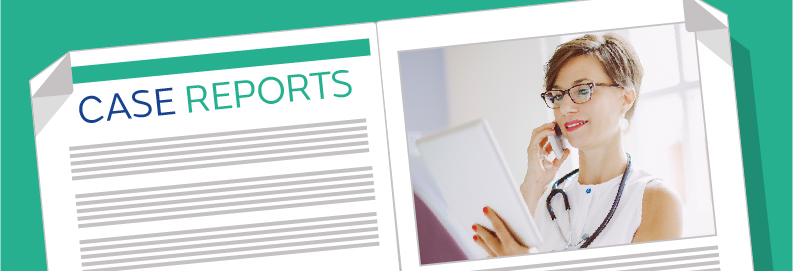Removal of medical equipment after death - Wales
If a patient dies and the death is reportable to the coroner, you should leave all equipment in place until you have discussed the case with the coroner’s officer. This factsheet gives you further information about what to do.
Read moreArticle contains
Tagged in...
Removal of medical equipment after death - England
If a patient dies and the death is reportable to the coroner, you should leave all equipment in place until you have discussed the case with the coroner’s officer. This factsheet gives you further information about what to do.
Read moreArticle contains
Tagged in...
Communicating with patients by fax and email - England
Electronic communication can provide a useful and alternative point of access for patients. However, you should ensure that, if sensitive information needs to be sent electronically, safeguards are in place to avoid breaching patient confidentiality. This factsheet sets out the potential risks of electronic communication.
Read moreArticle contains
Medical Innovation Bill a serious threat to doctor-patient relationship, says MPS
Ahead of the debate in the House of Lords on Friday 24 October, the Medical Protection Society (MPS) reiterates its opposition to the Medical Innovation Bill as it has the danger to inhibit responsible innovation, give false reassurance to doctors, and damage the doctor-patient relationship.
Read moreArticle contains
MPS survey: GMC investigations impact on the health of 72% of doctors
MPS calls for safeguards on a new offence of wilful neglect on doctors
MPS notes Healthwatch England’s ‘Suffering in silence' report
Dr Nick Clements, Head of Medical Services at MPS says: “It is worrying that three out of five patients and care users that complain about their treatment feel that the system is failing to address their concerns. A culture of openness in the NHS is critical to improving the quality and safety of patients.
Read moreArticle contains
MPS encourages doctors to ensure patients understand online medical records
While the Medical Protection Society (MPS) welcomes the significant increase in the percentage of patients who can access their medical records online, it is concerned that simply providing patients with access is not enough. MPS is urging doctors to also provide patients with the support they need to understand and use information safely, appropriately and effectively.
Read moreArticle contains
MPS survey: Consent an issue for practices involved in seven day GP access trial
Test your knowledge
Try these sample AKT questions provided by Dr Mahibur Rahman from Emedica
Read moreArticle contains
From the case files...
In this issue we bring you two interesting cases; the first encourages GPs to exercise caution when diagnosing haematuria, and the second highlights how various poor communication channels can have a negative impact on patient care.
Read moreArticle contains
The Apprentice
In her last column, our columnist Laura Davison, talks about her experiences of being a new GP.
Read moreArticle contains
Tagged in...
Safeguarding children FAQs - Scotland
The GMC states that “doctors play a crucial role in protecting children from abuse and neglect”. Child maltreatment includes neglect and physical, sexual and emotional abuse. The following frequently asked questions are designed to advise MPS members what to do and who to contact, should they suspect children are at risk of, or are experiencing, harm.
Read moreArticle contains
Tagged in...
Safeguarding children - Northern Ireland
Doctors play a crucial role in protecting children from abuse and neglect. Surgery consultations, home visits, emergency department admissions and contact with other professionals who work with children help to build up a picture of a child’s situation. This factsheet is designed to help members know how to act and who to contact when they suspect children are at risk of or are experiencing harm.
Read moreArticle contains
Controlled drugs - Scotland
Under the Misuse of Drugs Act (1971) and the Misuse of Drugs Regulations (2001), GPs have a responsibility for controlled drugs (CDs) within their practice. This factsheet highlights what you should be aware of when carrying, storing and recording controlled drugs.
Read moreArticle contains
Tagged in...
MPS says the Medical Innovation Bill is unnecessary
In response to the recent Legislation to encourage Medical Innovation Dr Nick Clements, Head of Medical Services at MPS said, "The Bill is unnecessary. Current law already allows doctors acting responsibly to innovate without fear of clinical negligence claims, provided they have the support of a responsible body of peers and the patient’s informed consent. The Bill gives false reassurance to doctors over their legal position and could undermine clinical trials therefore disrupting medical research.
Read moreArticle contains
MPS reminds doctors of duty to children who lack capacity
Will a new approach to patients near the end of life suffer the same...
Will a new approach to patients near the end of life suffer the same fate as the Liverpool Care Pathway?
Medicolegal expert and MPS spokesperson, Dr Pallavi Bradshaw, questions the new approach to end of life care outlined by the government.
Read moreArticle contains
Half of junior doctors have quality care concerns – supportive open culture needed
MPS responds to DH report on Medical Innovation Bill – the Bill is still unnecessary
How to handle attention from the media
Medicolegal adviser and MPS spokesperson, Dr Pallavi Bradshaw, outlines the various tactics employed by the press and what to do if you become involved in a media story.
Read moreArticle contains
Tagged in...
Female Genital Mutilation (FGM) - Northern Ireland
Female Genital Mutilation (FGM) has been a criminal offence in the UK since 1985 and the legislation was re-enacted in the Female Genital Mutilation Act 2003. Five official reports on the subject have been published since November 2013 and MPS has produced this guidance for members.
Read moreArticle contains
Removal of medical equipment after death - Scotland
If a patient dies and the death is reportable to the Crown Office and Procurator Fiscal Service, you should leave all equipment in place until you have discussed the case with the Procurator Fiscal. This factsheet gives you further information about what to do.
Read more





